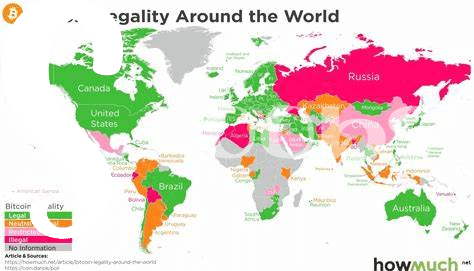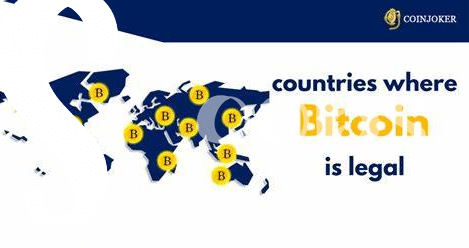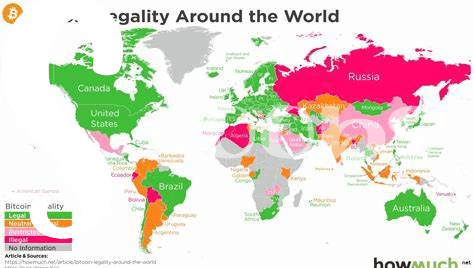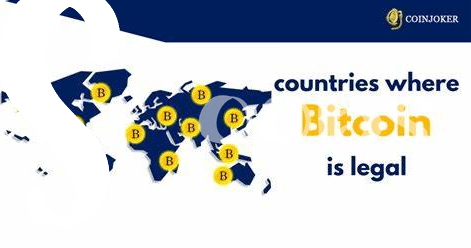🌍 Global Shift: Countries Embracing Bitcoin as Legal

Around the world, we’re witnessing a fascinating shift. Imagine a big, global map in your mind, with some countries starting to light up in a vibrant shade of recognition toward Bitcoin. These places are kind of like trendsetters at a school; they’re the first to try something new, setting a path that others often follow. They see Bitcoin not just as digital ‘magic internet money’ but as a real way to buy things, save up, and maybe even make a little money on the side. It’s kind of like how we used to trade goods, then coins, then paper money, and now, there’s this new form of money making waves.
Now, let’s sprinkle in some quick facts to paint a clearer picture. Here’s a simple table showing a few countries that are starting to embrace Bitcoin, and in what ways:
| Country | How They’re Embracing Bitcoin |
|---|---|
| El Salvador | First to accept Bitcoin as legal tender. |
| Germany | Allows banks to sell and store Bitcoin. |
| Canada | Approved Bitcoin exchange-traded funds (ETFs). |
In these pioneering places, the local folks, whether they’re shop owners or the person next door, are starting to see Bitcoin in a whole new light. It’s becoming part of their daily lives, blending into how they shop, save, and even think about money for tomorrow. This isn’t just about technology; it’s about a shift in mindset, opening the door to endless possibilities.
🚧 Roadblocks: Where Bitcoin Faces Legal Challenges
In exploring the world where Bitcoin bumps into legal walls, it’s fascinating yet a bit complicated. Think of it like a globe-trotter facing different rules at every border. Some places roll out the red carpet, making it easy to use Bitcoin for buying a cup of coffee or trading stocks. But then, there are spots on the map where Bitcoin is looked at with suspicion, putting up barriers that make it tough for people to use it freely. These legal challenges aren’t just about whether you can buy something with Bitcoin; they touch on bigger questions like how governments can keep an eye on it to prevent bad stuff like fraud, without stepping on our freedom to use it as we please.
At the heart of these challenges is a balancing act that countries are trying to perform—how to protect their citizens without stifling innovation. This push and pull have led to a hotchpotch of regulations across the globe, where one country’s embrace is another’s cold shoulder. For businesses and everyday folks looking to dive into the world of Bitcoin, navigating this landscape can feel like trying to solve a puzzle where the pieces keep changing shapes. But there’s hope on the horizon as more information becomes available, helping to demystify Bitcoin’s role in commerce. One valuable resource in understanding this evolving space is https://wikicrypto.news/comparing-top-bitcoin-payment-gateways-for-businesses, which sheds light on how Bitcoin can fit into the bigger picture of global trade and transactions.
📈 Regulation Evolution: from Fear to Acceptance

The journey of Bitcoin in the world of regulations is quite the adventure. Imagine a new neighbor moving in, and everyone’s unsure whether to welcome them with open arms or to be cautious. Initially, governments around the world eyed Bitcoin with a mix of curiosity and suspicion, much like how someone might view a mysterious, uninvited guest at a party. They couldn’t quite figure out what box to put it in – was it a currency, a commodity, or something entirely different? This uncertainty led to a hesitant approach, with many countries setting up barriers, unsure of how to deal with this digital newcomer. However, as time went on, the undeniable impact and potential of Bitcoin began to turn the tide. Picture the earlier wary governments now starting to see Bitcoin not as a threat, but as an innovator that could potentially revitalize their economies. This shift from apprehension to a more welcoming stance has paved the way for discussions around creating rules that make sense, fostering a safer environment for users, and acknowledging the unique place Bitcoin holds in the financial world. Through dialogues and collaborations, both globally and locally, we’re witnessing the emergence of a more Bitcoin-friendly legal landscape, marking a significant evolution from fear to acceptance.
🏦 Traditional Banks Vs. Bitcoin: an Evolving Relationship

Once upon a time, traditional banks and Bitcoin seemed like sworn enemies. Banks, with their vast buildings and strict rules, watched warily as Bitcoin, the digital upstart, began to gain attention. This young currency promised to make sending and receiving money as easy as sending an email, without the need for middlemen. But as time passed, a fascinating evolution unfolded. Instead of continuing to stand on opposing sides, banks and Bitcoin are slowly finding common ground. Banks are beginning to explore how they can use the technology behind Bitcoin, known as blockchain, to secure their processes and make transactions faster.
This partnership isn’t just good news for banks and Bitcoin; it’s a win for us, the users, too. By blending the strengths of both worlds, we might soon enjoy the best of both: the reliability and trust of traditional banking, alongside the innovation and efficiency of Bitcoin. For an in-depth look into how Bitcoin is interacting with and influencing global payments and sanctions, bitcoin and payment channels explained offers a comprehensive dive into this evolving dynamic. As both sectors continue to learn from each other, we stand on the brink of a financial revolution, where digital currencies and traditional banks coexist and complement one another, paving the way for a future where our financial systems are more inclusive, efficient, and secure.
🤝 International Cooperation on Bitcoin’s Legal Framework
As countries around the world grapple with the complexities of Bitcoin, a roadmap to harmony is being drawn through global teamwork. Imagine countries as diverse as the U.S. and Japan sitting at one big round table, not just talking, but actively collaborating to create a set of rules that make sense for Bitcoin. This isn’t a far-off dream but a budding reality. 🌐✨ Such international efforts aim to tackle the big questions: How can we keep Bitcoin safe for everyone? Can we stop bad actors from taking advantage? And importantly, how do we respect each country’s independence while finding common ground? This cooperative spirit showcases the world’s shared belief in the potential of digital currencies. By knitting together a patchwork of regulations into a cohesive quilt, the aim is to create a legal framework that is both flexible and robust. 🛠️🔗 Efforts to educate and include stakeholders from various sectors – governments, tech, finance – are key to crafting regulations that reflect the diverse needs and concerns of the global community.
| Country | Role in Cooperation | Key Contributions |
|---|---|---|
| USA | Policy Development | Innovative Regulatory Approaches |
| Japan | Technical Frameworks | Security and Exchange Standards |
| Germany | Financial Integration | Banking and Bitcoin Synergy Models |
By channeling their unique strengths into a collective effort, these countries are spearheading the movement towards a balanced and universally beneficial Bitcoin legal framework.
📚 Educating the Masses: the Key to Bitcoin’s Legality

Understanding Bitcoin and its place in the world isn’t just about watching its price on a screen; it’s about getting to grips with what it truly means for our global financial systems. Think of Bitcoin as a tree growing in a vast forest. For it to grow strong and tall, it needs a solid foundation and the right conditions. That’s where educating everyone comes into play – it’s like the water and sunlight for our Bitcoin tree. By simplifying the complex bits and showing how it can fit into everyday life, we make the concept of Bitcoin not just something for the tech-savvy or the finance experts but for everyone. This means breaking down how it works in easy-to-understand terms, showing folks how to use it safely, and explaining its benefits and potential risks. A big part of this education involves clearing up misconceptions. For example, many people worry about Bitcoin’s role in illegal activities. However, with proper understanding, it becomes clearer that Bitcoin is not the bad guy some think it is. Supporting this education are resources that delve deeper into specific areas, such as bitcoin payment gateways explained for those curious about using Bitcoin in commerce, or for those wondering about global regulations, international sanctions explained offers insights. It’s a journey, but as knowledge spreads, so does acceptance, paving the way for a future where Bitcoin’s place in the legal framework is clear and secure.
